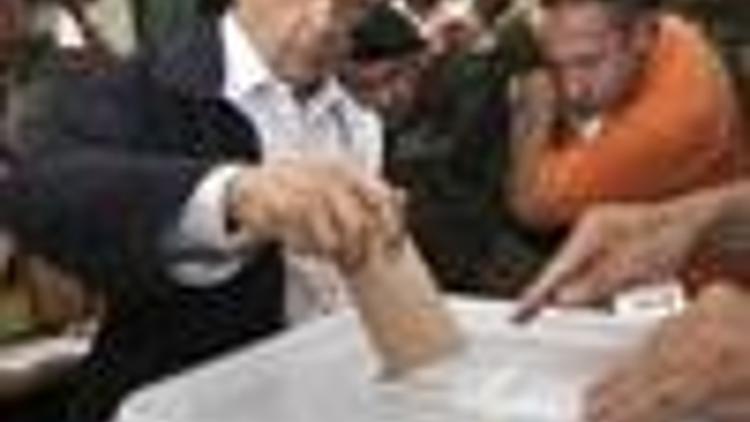Conservatives deal center-left painful blow in EU parliamentary elections
Güncelleme Tarihi:

BRUSSELS - European conservatives decisively beat socialists and several far-right fringe parties made gains in EU elections marred by record low turnout, results showed Monday. (UPDATED)
The polls marked a painful defeat for the socialists, who failed to capitalize on concerns about
Governing center-left parties in
CThe center-right bloc in the EU parliament, the European People’s Party, or EPP, secured 263 seats confirming it again as the biggest group in the 736-member assembly, ahead of the socialists on 163 seats, down from 215 in 2004, official estimates said.
The win came despite the desertion of the British and Czech conservatives.
The Liberal Democrats came in third with 80 seats in the assembly, underlining the tendency to vote to the right.
The Greens performed well in fourth place, boosting their seats from 43 to 52 in the European Union’s only directly elected institution.
It remains unclear how closely the EPP and the Party of European Socialists, which analysts said should have won ground given the effects of the economic crisis, will continue to work together.
Given their losses, the socialists might feel obliged to take a more leftist stance, making it easier for the liberals to work with the conservatives, who nevertheless are mulling a grand alliance with both.�
"The traditional parties of the left should ask themselves why, in the midst of crisis, just when free market theories appear to be most challenged, people continue to prefer liberal recipes,"
RECORD LOW TURNOUT
Some 388 million people were eligible to vote over four days in the 27 EU nations to select a new European Parliament for five years.
Turnout slumped to 42.8 percent, down from 45.4 percent in 2004.
The extreme right-wing British National Party won its first two European Parliament seats, while Dutch anti-Islamic lawmaker Geert Wilders’s Party for Freedom came second on Thursday with 17 percent.
"The turnout compared to 2004 shows that this is not the time for complacency," European Commission President Jose Manuel Barroso said, urging national governments to play a more visible EU role.
The conservative victory boosts Barroso’s chances of securing a second term at the helm of the EU executive arm.
In Britain, embattled Prime Minister Gordon Brown faced a new fight for his leadership after his Labor Party was mauled and the far-right won support.
German Chancellor Angela Merkel’s conservatives came out on top, trouncing her Social Democrat rivals in what was seen as a test for Septembers general election.
French President Nicolas Sarkozy’s right-wing UMP party romped home with close to 28 percent, leaving the opposition Socialists trailing with just over 16 percent, about the same as the Greens.
Scandal-plagued Italian Prime Minister Silvio Berlusconi’s party led with 34.7 percent, with most ballots counted -- well below his target of 40 percent.
"We must also take account of classic anti-Berlusconism," his spokesman said. "Not to mention the exploitation of personal stories against the head of government."
Support rose for Italy’s anti-immigrant Northern League.
Spain’s opposition conservatives beat the ruling Socialists of Prime Minister Jose Luis Rodriguez Zapatero.
The Socialist party of Portuguese Prime Minister Jose Socrates also suffered a surprise defeat by the right-wing Social Democrats.
In Austria, the list of eurosceptic campaigner Hans-Peter Martin made major gains, while the ruling Social Democrats had their worst election ever.
Support for Finland’s nationalist and eurosceptic True Finns party also rose, with about 10 percent, according to preliminary results.
In Ireland, Prime Minister Brian Cowen’s centrist Fianna Fail suffered a voter backlash Friday, losing out to the opposition Fine Gael.
In contrast to its center-right European peers, Greece’s ruling conservatives trailed the opposition Socialists for their first defeat in five years amid record-low turnout.
In Bulgaria, allegations of vote-buying marred polling. Three were arrested.

